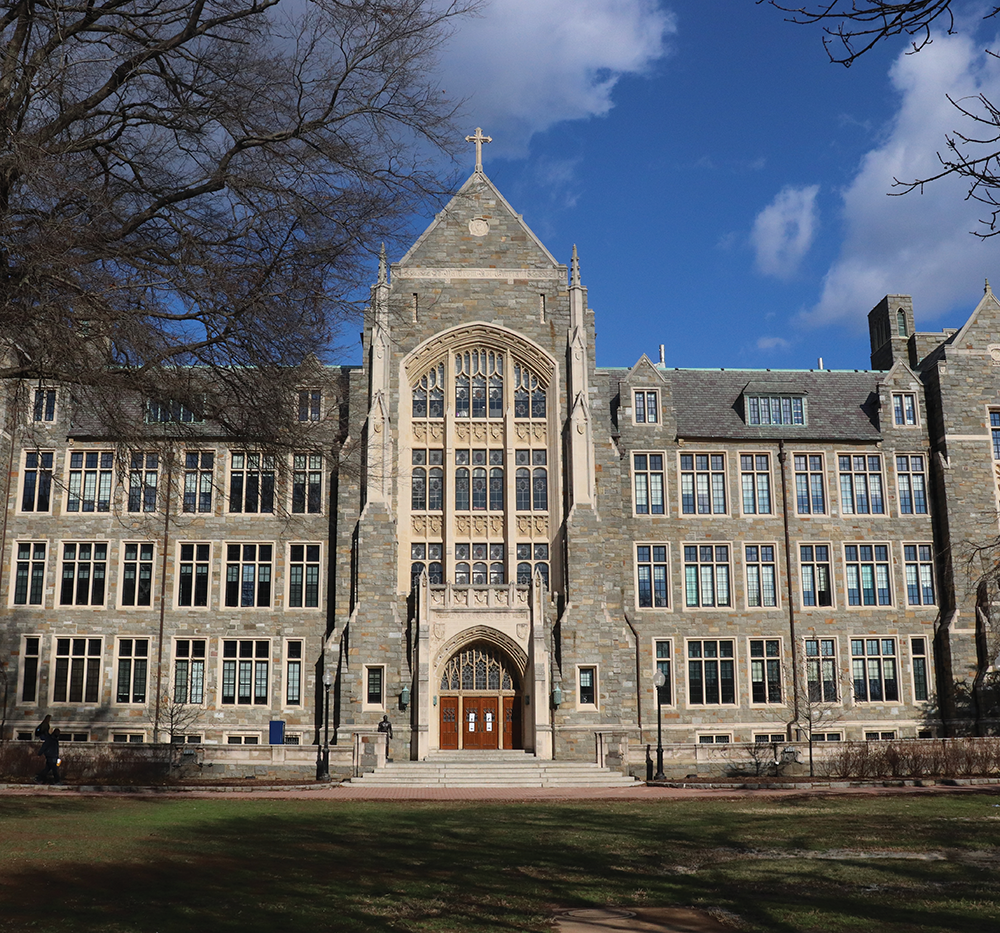Georgetown University students launched a petition demanding the university divest its endowment from companies associated with the prison industrial complex Aug. 3.
The petition, which has gathered 638 signatures as of Aug. 6, was drafted by leaders of the Georgetown University Prison Divestment Campaign, a student-led group advocating for greater transparency from university endowment managers to promote ethical investments. The campaign builds off of a student-led initiative in 2017 that resulted in the university’s board of directors agreeing not to invest in private prison companies.
The petition asks the university to compile a report on the progress of the 2017 divestment pledge. It also calls on the university to divest from companies that use exploitative prison labor in their supply chains, as well as from corporations with business contracts that control prison necessities.

The petition presents concrete demands that will help further the university’s commitment to social justice, according to Abigail Lovell (COL ’21), who helped write the petition.
“It would take a really tangible step in solidifying our commitment to racial and social justice,” Lovell said in a phone interview with The Hoya. “Sometimes it feels like Georgetown sends a lot of emails but doesn’t actually do a lot of work. We think the petition is the logical next step in furthering that work.”
Campaign organizers said the university did not disclose its investment portfolio, which has limited their ability to determine how much of the endowment is invested in companies that contribute to the prison industrial complex.
The prison divestment campaign aims to hold the university to account for its investment practices, according to Chloe Quigley (COL ’21), who also helped write the petition.
“A lot of what we really hope to get out of this campaign is increased transparency and increased dialogue between the university endowment managers and the student body,” Quigley said in a phone interview with The Hoya.
The petition also calls on the university’s Committee on Investments and Social Responsibility, which advises the board of directors on university investments and ensures those investments align with university values, to require all future investments to go toward companies that employ fair hiring practices for formerly incarcerated people. The petition also demands that the university invest in companies and initiatives that implement policies that help reduce recidivism and promote fair hiring practices.
The university has not yet responded to a request for comment.
Georgetown’s Center for Social Justice, Research, Teaching and Service has tentatively agreed to have interns research companies that contribute to the prison industrial complex, according to Quigley. The campaign will then present the list to the CISR and ask the committee to recommend the university divest from the listed companies.
Campaign organizers found inspiration from similar student-led movements in the 1970s and 1980s that pushed for universities across the United States to divest from companies that supported the apartheid regime of South Africa, according to Lovell.
“We’ve been inspired by that model and hope that by sharing our work and sharing our thoughts and collaborating on our mission we can make a larger impact on the system than just one university,” Lovell said.
Organizers at Georgetown are collaborating with students at Yale University, Duke University, the University of Pennsylvania and other major universities that are advocating for divestment. The campaigns share a website that has information about how students can lobby university administrators for divestment.
Leaders from the campaign have received advice from GU Fossil Free, the student group that successfully pushed the university to divest from fossil fuel companies earlier this year, according to Quigley.
However, Yasmeen El-Hasan (SFS ’20, GRD ’21), who previously served as the Georgetown University Student Association representative to CISR, said that, even if the committee decides to adopt the campaign’s recommendations, the university may not follow through on divesting.
“They’re kind of like the gatekeepers to the rest of the process. Really, most of the power is with the Board, who has the final say,” El-Hasan said in an email to The Hoya.
Successfully pushing divestment could require years of sustained effort because of possible bureaucratic inertia, according to El-Hasan.
If the board decides to adopt the demands of the petition, Georgetown would be a leader in ethical investing among other major universities, according to Quigley.
“Georgetown can really take this as an opportunity to be a leader among its peer institutions,” Quigley said. “There’s this hypocrisy in Georgetown being invested in the prison industrial complex and everything the university seems to stand for and all the values that are taught.”




















